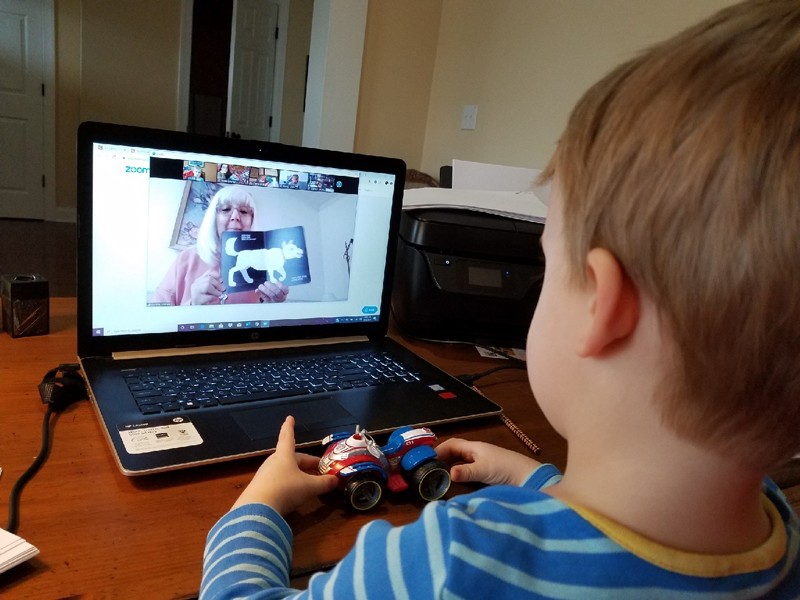Lab School
UD Lab School Shifts to Virtual Learning

May 1, 2020
Serving children ages six months to six years, the Lab School helps UD students learn to teach
Young children thrive off routine. The daily rhythms of group time and singalongs may seem like child’s play, but activities like these, conducted in classrooms with trusted friends and teachers, are essential to their intellectual and social development. So when the coronavirus (COVID-19) pandemic caused governments to close schools and confine families to their homes, many parents were left wondering how to keep their children’s education on track.
At the Laboratory School, which is located on the University of Delaware’s Children’s Campus and serves children ages six months to six years, the faculty of Master Teachers immediately began developing plans to bring their programs into the homes of their children and families. (Master Teachers supervise and serve as model teachers for undergraduate student teachers and practicum students.)
“We never prepared for something like this,” says Lab School Director Dorit Radnai-Griffin. Less than a week after UD’s campus suspended classes, the school transitioned to digital classrooms using the videoconferencing app Zoom. “Our incredible teachers took on the challenge of figuring this out, and they did so quickly with one goal in mind: staying connected with our children and families in such times of uncertainty.”
Despite challenges, over the past three weeks faculty members have grown into their new roles as long-distance teachers. Taking into consideration the age of their children, teachers may hold one or two sessions daily, while others may hold a session every other day. Some families may stay for the duration of the session while others may just check in to say hello.
From the start, this meant re-evaluating the curriculum and adapting to the limitations of videoconferencing, suggested Master Teacher Laura Morris, as well as understanding the challenges facing their students. In her classes, Morris emphasizes compassion and flexibility.
“These meetings offer some sense of normalcy,” said Morris. “As a three- or four-year-old, how does this situation impact their understanding of the world? When the world is not predictable — when we can’t control what’s happening on the outside — we learn to take control of what’s happening on the inside.”
Master Teacher Monica Shire agreed. “A lot of the kids weren’t really recognizing that they were worried, confused, or just lonely because they’re not seeing their friends,” Shire said. “So we reinforce that any feeling they are having is OK.”
In practice, this has translated to less time spent on what one may consider standard curriculum, like the alphabet and counting numbers, and more time on other developmentally appropriate learning activities, such as songs and dancing, guided drawing and art exercises, storytelling and Yoga, and, at times, just a conversation.
During the first week of remote learning, the master teachers at the Lab School, along with their teaching team of undergraduate students, engaged with children in developmentally appropriate discussions about microbes and the COVID-19 pandemic to help children understand what is happening.
“It’s not just about content and curriculum,” said Jennifer Gallo-Fox, professor in the Department of Human Development and Family Sciences, which is part of the College of Education and Human Development. “One of the things we teach in early childhood education is focusing on the needs of the child, connecting to the children, and listening to their needs, as well as the needs of their families.”
While their primary focus is on the children, teachers remain mindful of family needs as well, careful not to burden the parents with too much curriculum.
“We’ve often had to stop and ask ourselves if we are adding to parents’ stress or alleviating it,” Morris said. “Everything we do depends on an adult being able to turn on a computer. There’s a big person on the other end who will decide what does or doesn’t work.”
To ensure that the new virtual learning format is meeting the needs of children and their families, teachers have also been conducting meetings with parents in the evenings to provide them with an outlet to discuss the new reality within their households.
“Our students and their families are being honest about their struggles,” said Katie Pollock, master teacher of the Lab School’s Nature Preschool program. “To hear what they are struggling with and how they are handling it, and to just be there so they have a supportive community. We’re closer than ever, even though we’re farther apart.”
